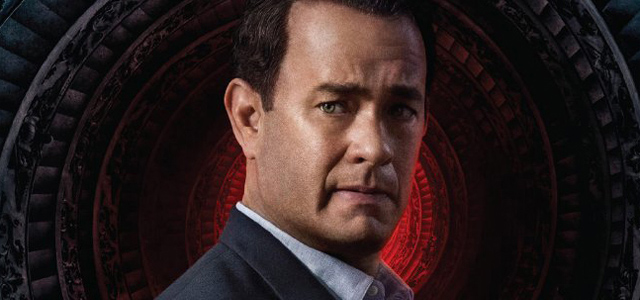(M) Tom Hanks, Felicity Jones, Ben Foster
Since The Da Vinci Code was first published in 2003, Dan Brown’s religious-themed novels have become a phenomenon that has drawn worldwide acclaim and extreme scrutiny. The action/mystery novels have sold millions of copies, spurred numerous theological debates — and lead character Robert Langdon has become the most recognised fictional symbologist in the world.
With all of that success, it makes sense that film adaptations of Brown’s books soon followed. In the process, they have attracted top-shelf talent. The team of Academy Award winners Ron Howard (A Beautiful Mind) and Tom Hanks (Sully) initially took on the challenge of bringing Professor Langdon to the big screen, with The Da Vinci Code (2006). Given the built-in audience from the novels and the talent lined up for the film franchise, Brown’s series of Langdon adventures should have provided a not-so-secret code for movie success. But this algorithm has not always delivered, with The Da Vinci Code and sequel Angels and Demons generating only modest reviews and box office results which didn’t smash records.
With the release of Inferno — the final instalment of the Dan Brown/Robert Langdon cinematic franchise — will the tide turn? It does not seem to have a snowball’s chance in hell.
The latest chapter in the saga of Robert Langdon (Tom Hanks) begins with the scholar in a hospital bed in Italy. He has a bullet wound and no short-term memory. Langdon can remember everything except the previous week and how he ended up on the European continent. Dr. Sienna Brooks (Felicity Jones) is his attending doctor and attempts to help the world-renowned symbologist unravel the mystery of his memory loss — and also find out who is behind the threats on his life. Through a series of action-packed and twisted events, Langdon partners with Brooks to find the answers to his recent past, even though he is unable to understand what has happened to him or where the answers may lead them. Working a few steps ahead of the World Health Organisation and a secret society funded by billionaire Bertrand Zobrist (Ben Foster), the duo travels throughout many of the world’s most renowned museums to find the clues to this puzzle. Specifically, these new partners in symbolic enigmas must work through the signs found in the famous Dante’s Inferno —and other historical artwork — with the intention of saving half of the world’s population from a deadly plague.
In an attempt to make Professor Langford into the thinking man’s action hero, director Ron Howard has done the best with what he has been given. He has exceptionally talented people behind and in front of the camera but, even with all of this to work with, Dan Brown’s story fails this celebrated director. Inferno is convoluted mayhem that would be laughable and farcical, if its premise were not built on the potential for a world-wide plague and that the solutions need to be found in a depiction of hell. This genre of film does not always bode well for logic, but the suspension of disbelief is stretched beyond reasonable expectations by Inferno. From the amnesiac plotline to the seemingly overwhelming power of the World Health Organisation, Brown’s story was always going to present a challenge for any film-maker to make it accessible for audiences.
Landscapes and landmarks do provide beautiful backgrounds for this tale of world annihilation. Howard continues to show his ability to find the ideal locations for the action to occur, but even the scenery cannot make up for the weak story that is playing out in the foreground. The substandard scripting and poor use of the acting talent becomes exasperating after awhile and goes from bad to worse as the film progresses. It even comes through in the performances of the lead players who all look as tired and frustrated with script as the audience. The best thing that can be said about Inferno is that it is the end to the franchise.
What are some of the bigger questions to consider from this film?
Is hell a real place? That’s a question addressed by people through history and is expressed in various forms in many of the world’s religions. Dante’s Inferno is still considered by many to be an accurate depiction of this place of fire and brimstone. The Bible addresses the subject of hell and even though Dante provides an imaginatively detailed visual account, it is far from what is understood in the Bible. This place of eternal separation from God is a place that no-one should desire to reside and, thankfully, the words of God share how to avoid going there.
Passages from the Bible that talk of hell and, also, how to not go there:
Matthew 10:28
John 3:16
Hebrews 10:26-31
Revelation 20:15, 21:8
Russell Matthews works for City Bible Forum Sydney and is a film blogger













